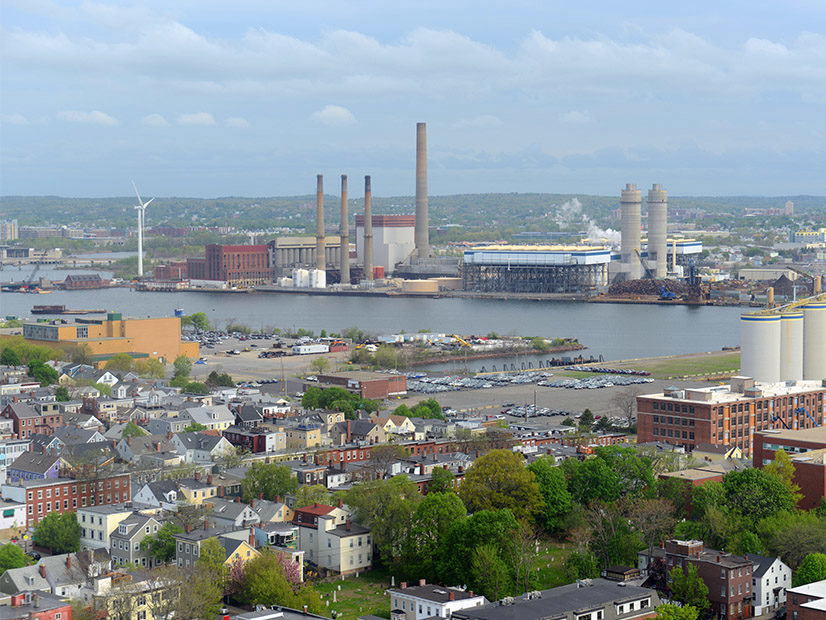
The D.C. Circuit Court of Appeals issued rulings Tuesday on a variety of petitions relating to the Mystic Generating Station, granting review to a group of state regulators and rejecting several requests from the plant’s owner (20-1343).
At issue were six FERC orders related to the approval of a cost-of-service agreement between Mystic and ISO-NE, dating from 2018 to 2020 (ER18-1639). (See FERC Further Alters Mystic Cost-of-service Agreement.)
First, Mystic argued that FERC mistakenly applied the “original cost test” to calculate the rate base for Units 8 and 9, which were kept operating by the agreement.
The original cost test says that a utility “may only earn a return on (and recovery of) the lesser of the net original cost of the plant or, when plant assets change hands in arms-length transactions, the purchase price of the plant.”
Mystic’s parent company valued Units 8 and 9 as part of a merger in 2012 around $925 million and claimed that “sale” price should determine its rate base.
The commission rejected that approach as inconsistent with the original cost test because of the units’ full purchase history.
The D.C. Circuit sided with FERC on that question and did not grant review, saying the decision “accorded with [the commission’s] precedent and was supported by reasoned explanation.”
The court also dismissed Mystic’s challenge to the capital structure adopted by the commission for ratemaking purposes, because a subsequent order made the challenge moot.
Another order examined in the court’s ruling was related to the cost recovery for Everett, an LNG terminal attached to the plant. Both Mystic and state regulators challenged FERC’s approach.
The regulators argued that the commission lacked jurisdiction to regulate the rates charged by Everett and that FERC’s decision to allocate 91% of Everett’s operating costs to Mystic — and therefore ultimately to ratepayers — was arbitrary and capricious.
The court agreed with those arguments but not with Mystic, which argued that “the commission erred in excluding Everett’s purchase price from Everett’s rate base.”
Next, both Mystic and the states challenged the “true up” mechanism approved by FERC, designed to allow parties to “reconcile cost projections with actual expenditures via surcharges and refunds as necessary.” Mystic argued that “the true-up mechanism will lead to relitigation of its historic costs.”
The court said that was unfounded. It accepted, however, the states’ arguments that FERC failed to address a request for clarification about how it calculated revenue credits and Everett’s tank congestion charges. Those issues were remanded by the court for clarification.
Finally, the states took issue with parts of a “clawback” provision that would require Mystic to reimburse ratepayers for some expenses if it re-enters the New England energy markets after the agreement is over.
The states argued that Everett’s costs shouldn’t have been excluded from the clawback rules, and the court agreed. It also granted review of the states’ claim that FERC “failed to address their argument that the Mystic agreement will induce Mystic to delay capital projects into the term of the agreement.”


